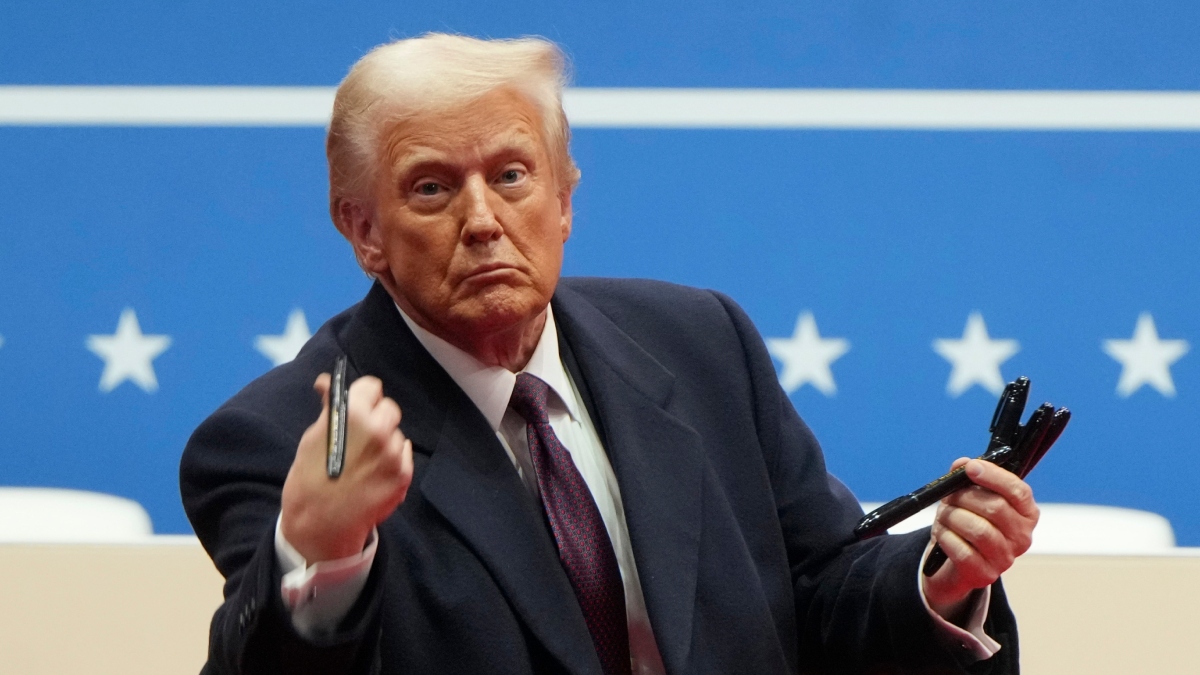US set to hold direct nuclear talks with Iran
 US President Donald Trump | AP
US President Donald Trump | AP
US President Donald Trump announced on Monday that the United States and Iran would hold direct talks on April 12 to negotiate a potential nuclear deal. The twist came after months of heightened tensions, with Trump warning Iran that failure to reach an agreement at the earliest could be catastrophic for Tehran.
The talks, confirmed by Iran's Foreign Minister Abbas Araqchi, could take place in Oman, the Gulf sultanate that has historically facilitated communication between the two nations. Araqchi described the meeting as "as much an opportunity as it is a test”, placing the onus on the US to prove its intentions.
Trump, speaking from the Oval Office along with visiting Israeli Prime Minister Benjamin Netanyahu, described the negotiations as occurring "at almost the highest level”. While he did not disclose the location or the US delegation involved, according to multiple sources the American team could be led by Steve Witkoff, Trump’s Middle East envoy.
The president expressed cautious optimism, stating, "Maybe a deal is going to be made, that would be great," but he also issued a stark warning: "Iran cannot have a nuclear weapon, and if the talks aren’t successful, I actually think it’ll be a very bad day for Iran.”
The announcement comes amid a flurry of diplomatic activity. Netanyahu’s second visit to the White House in just over two months centred on discussions about Trump’s global tariff policies, Iran’s nuclear ambitions and the ongoing Israel-Hamas conflict.
According to sources, part of Netanyahu’s agenda was to align with Trump on potential military responses should diplomacy with Iran falter. Israel, viewing a nuclear-armed Iran as an existential threat, has long pushed for military action against Tehran’s nuclear facilities. Last year, Israel conducted a retaliatory strike on an Iranian nuclear site following an earlier missile attack by Iran on Israeli soil.
Iran claims that its nuclear programme is for energy purposes, but the US and Israel believe that Tehran’s actual intent is to create deterrence by using the programme to make nuclear weapons. Trump cited this as a reason to pull the US out from the 2015 nuclear agreement concluded under the Obama regime.
The Trump administration has oscillated between sticks of military action and carrots of peace. Last month, he sent a letter to Iran’s Supreme Leader, Ayatollah Ali Khamenei, proposing direct negotiations—a move initially rebuffed by Iranian President Masoud Pezeshkian, though Tehran indicated that indirect talks remained a possibility.
The upcoming meeting on Saturday marks a significant shift, being the first direct senior-level engagement since 2015, when then-US Secretary of State John Kerry and Iranian foreign minister Mohammad Javad Zarif finalised the now-defunct nuclear accord.
Trump has repeatedly tried to link Iran’s nuclear ambitions to its support for groups like Hamas, Hezbollah and the Houthis. "If they don’t make a deal, there will be bombing," he said last month, hinting at major military action. The US has moved B-2 stealth bombers and an additional aircraft carrier close to the Middle East, perhaps as a warning to both Yemen and Iran. This rhetoric aligns with his administration’s recent escalation against the Iran-backed Houthis in Yemen, where US airstrikes since mid-March have cost nearly a billion dollars so far, according to an estimate, yet failed to significantly degrade the group’s capabilities.
However, Trump’s approach has sparked division within his own ranks. His inner circle includes Iran hawks like National Security Adviser Mike Waltz and Secretary of State Marco Rubio, who favour a hardline stance, but there are some officials who think a deal can be reached.
Netanyahu, meanwhile, expressed cautious support for diplomacy, noting, "If it can be done diplomatically in a full way, the way it was done in Libya, I think that would be a good thing," though Israel’s preference for preemptive strikes remains clear.
As far as Iran is concerned, the talks represent a delicate balancing act. Araqchi’s statement on X underscores Tehran’s wariness, but at the same time the senior leadership in Tehran seems to have spotted an opportunity. The country does not have formal diplomatic ties with Washington since the 1980 hostage crisis, so this could be a risky move, but with certain rewards.
Middle East